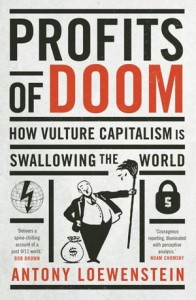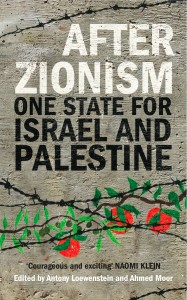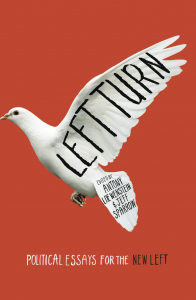How to fight the toxic culture wars and win
My book review appears in the Weekend Australian newspaper with the great headline: “What did you do in the culture wars, daddy-o?:
As soon as Donald Trump unexpectedly won the White House in 2016, commentators and instant experts claimed it was because of economic anxiety. White, working-class Americans voted for the Republican candidate in greater numbers than Hillary Clinton, and the narrative was set: ignorant and insecure voters reportedly had backed the reality TV star because they feared losing their jobs and being discarded by globalisation and free trade. This thesis was only partly true.
In April, Stanford University political scientist Diana Mutz published a study that debunked the myth. “In this election,” she concluded, “education represented group status threat rather than being left behind economically. Those who felt that the hierarchy was being upended — with whites discriminated against more than blacks, Christians discriminated against more than Muslims, and men discriminated against more than women — were most likely to support Trump.”
Australian writer Jeff Sparrow succinctly explains in Trigger Warnings how Trump cleverly skewered his political enemies by appealing to their anger at the elite political and media classes (despite being a member of the elite himself). By damning political correctness without ever describing what it meant, Sparrow explains, Trump convinced his opponents “into calling for decorum, at a time when his supporters wanted to scream their rage”. Trump and his advisers read the mood of the country well and rode it to victory.
Trigger Warnings is a rare book that takes a necessary scalpel to the leftist political persuasion of its author as much as, if not more than, the right-wing agenda he opposes. Near the beginning, Sparrow outlines the bald facts of 21st-century life. With the “world’s eight richest billionaires controlling as much as the poorest half of the planet’s population … a historian of the future might assume that the Left was ascendant: that the injustice under which the planet groaned would be fuelling radical ideas and egalitarian alternatives to the status quo. Such a historian would be wrong.”
What follows is a potted history of how phrases such as “political correctness” and “culture wars” originated and how they have been weaponised today by the Right in ways that largely have trapped the Left, unsure how to respond. Sparrow writes that although right-wingers “portray PC as an Orwellian scheme to end freedom of speech, a deliberate strategy to impose a progressive orthodoxy”, the Left used the term from the 1960s as a gag to mock colleagues who believed in censorship. By the 90s, however, its usage had morphed and the Right claimed that being anti-PC meant “a minority using bureaucratic measures to enforce progressive ideas”.
In a post-Cold War world, where the designated enemy was no longer clear, right-wing politicians and their media cheerleaders correctly believed that by launching multiple culture wars over sexuality, gender, patriotism and morality, the Left would be consumed with these debates instead of challenging neoliberal “reforms” that enriched big business at the expense of ordinary people. It worked in many nations, including Australia, Britain and the US, but there are signs its effectiveness is breaking down.
For example, the electoral appeal of Jeremy Corbyn’s Labour Party in Britain is linked to the fact that years of Conservative Party-pushed austerity has led to one-fifth of the population living in poverty. Recent attempts by Theresa May’s government and many in the corporate media to falsely accuse Corbyn and his team of rampant anti-Semitism, a classic “culture war” tactic, has done little to affect his public standing. Whether his popularity leads to assuming power as prime minister remains to be seen.
The strongest sections of Sparrow’s book are his demolition of “smug politics” that have been employed by the Left in the past decades.
For comedians Stephen Colbert, Jon Stewart and Trevor Noah of The Daily Show, any number of performers who populate Netflix and HBO and “new atheists” such as Richard Dawkins, the stupidity of vast swathes of the populace was a given. After all, how else could so many vote for George W. Bush or Trump and watch Fox News?
The political ramifications for showing contempt of the electorate are obvious.
“If progressives couldn’t influence society,” Sparrow argues, “that was the fault of society — or more exactly, the people who were too stupid and too venal to appreciate the objective correctness of progressive ideas.” Left ideas will never thrive in such an environment.
The solution to this malaise is (too briefly) outlined by Sparrow but he argues only radical solutions to present-day problems will work. How else to address the climate change crisis without imagining a zero-emissions future solely with renewable energy sources?
Symbolic gestures pushed by celebrities to switch off the lights just won’t cut it; the Left needs to build mass movements for change, an all-too-uncommon occurrence today.
Likewise with addressing the apartheid-level rates of indigenous Australian incarceration. “If we’re not talking about the need for structural change, we’re simply not acknowledging reality,” Sparrow concludes. How to achieve this is easier written than done.
Sparrow doesn’t underestimate the challenges and calls for “liberation”, a word that is almost invisible in the modern age. There are successful examples from which to take inspiration, from the struggles for same-sex equality to supporting the legalisation of marijuana across the US.
“Symbolic redress” won’t suffice to help ordinary people facing serious problems, Sparrow says, and the current path leads only to decades more of circular arguments that will embolden the status quo.
Antony Loewenstein is an independent journalist and author of Disaster Capitalism: Making a Killing Out of Catastrophe.
Trigger Warnings: Political Correctness and the Rise of the Right
By Jeff Sparrow
Scribe, 320pp, $29.99

 Vulture capitalism has seen the corporation become more powerful than the state, and yet its work is often done by stealth, supported by political and media elites. The result is privatised wars and outsourced detention centres, mining companies pillaging precious land in developing countries and struggling nations invaded by NGOs and the corporate dollar.
Best-selling journalist Antony Loewenstein travels to Afghanistan, Pakistan, Haiti, Papua New Guinea and across Australia to witness the reality of this largely hidden world of privatised detention centres, outsourced aid, destructive resource wars and militarized private security. Who is involved and why? Can it be stopped? What are the alternatives in a globalised world?
Vulture capitalism has seen the corporation become more powerful than the state, and yet its work is often done by stealth, supported by political and media elites. The result is privatised wars and outsourced detention centres, mining companies pillaging precious land in developing countries and struggling nations invaded by NGOs and the corporate dollar.
Best-selling journalist Antony Loewenstein travels to Afghanistan, Pakistan, Haiti, Papua New Guinea and across Australia to witness the reality of this largely hidden world of privatised detention centres, outsourced aid, destructive resource wars and militarized private security. Who is involved and why? Can it be stopped? What are the alternatives in a globalised world? 

 The 2008 financial crisis opened the door for a bold, progressive social movement. But despite widespread revulsion at economic inequity and political opportunism, after the crash very little has changed.
Has the Left failed? What agenda should progressives pursue? And what alternatives do they dare to imagine?
The 2008 financial crisis opened the door for a bold, progressive social movement. But despite widespread revulsion at economic inequity and political opportunism, after the crash very little has changed.
Has the Left failed? What agenda should progressives pursue? And what alternatives do they dare to imagine?
 The Blogging Revolution, released by
The Blogging Revolution, released by  The best-selling book on the Israel/Palestine conflict,
The best-selling book on the Israel/Palestine conflict,